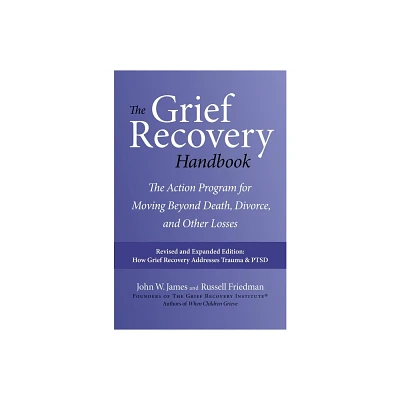Home
Mountains [20th Anniversay Expanded Edition]
Loading Inventory...
Barnes and Noble
Mountains [20th Anniversay Expanded Edition]
Current price: $33.99
![Mountains [20th Anniversay Expanded Edition]](https://cdn.mall.adeptmind.ai/https%3A%2F%2Fprodimage.images-bn.com%2Fpimages%2F0744861036302_p0_v1_s600x595.jpg_640x.jpg)
![Mountains [20th Anniversay Expanded Edition]](https://cdn.mall.adeptmind.ai/https%3A%2F%2Fprodimage.images-bn.com%2Fpimages%2F0744861036302_p0_v1_s600x595.jpg_640x.jpg)
Barnes and Noble
Mountains [20th Anniversay Expanded Edition]
Current price: $33.99
Loading Inventory...
Size: OS
*Product Information may vary - to confirm product availability, pricing, and additional information please contact Barnes and Noble
Even within
Mary Timony
's wide-ranging body of work,
Mountains
remains strikingly singular. She seems truly on her own on her 2000 solo debut, taking the medieval-inspired imagery of
Helium
's swan song
The Magic City
in a direction that conjures visions of
Timony
as a damsel exiled in a castle of sorrow. These songs are filled with enough death, poison, fire, insanity, and demons for any prog or metal epic, but it's their insular mood that makes them so haunting, especially when compared to
's fiery manifestos. As if to underscore the difference between this album and
's previous music,
begins with "Dungeon Dance," a piano ballad that's as raw in its loneliness and pain as
's music was in its fierce intelligence.
goes on to spin fables and fairy tales like the modern-day Dark Ages of "Poison Moon" and the cryptic riddle "13 Bees," which takes listeners on a flight of fancy with just her voice and piano. Within
' prog flourishes and punk-indebted starkness is some of
's most eclectic music, ranging from heavy rock to electronic touches as well as acoustic balladry. Traces of her work with
surface on "The Golden Fruit," a tale of women gaining power in secret set to driving medieval synth-rock. A trumpet augments her formidable fretwork on the charging finale "Rider on the Stormy Sea," one of a handful of showcases for her dazzling guitar skills that also includes "The Bell." More often, though,
casts bewitching spells with open-ended melodies and instrumentation like "An-deluzion"'s elastic keyboards and intricate guitars. On "Painted Horses" and the mighty "One Thousand Perfumes," her heavy tremolos sound like the warping of time and space. As woozy as
' music gets,
's lyrics are often down-to-earth. When she sings "How was I supposed to know that you don't even like me?" on the keyboard reverie "1542" or "Can you see love through a telescope/The end of fear/And the beginning of hope?" on the standout "I Fire Myself," it adds a vital jolt of reality to the album's fantasies. At the time of its release,
' witchy chamber rock may have seemed too esoteric compared to
's previous work. In retrospect, though, it reaffirms her status as a trailblazer -- just a few years later, artists such as
Joanna Newsom
earned wide acclaim for adding fantastical and folky elements to indie music -- and introduces a fascinating era in
's career. ~ Heather Phares
Mary Timony
's wide-ranging body of work,
Mountains
remains strikingly singular. She seems truly on her own on her 2000 solo debut, taking the medieval-inspired imagery of
Helium
's swan song
The Magic City
in a direction that conjures visions of
Timony
as a damsel exiled in a castle of sorrow. These songs are filled with enough death, poison, fire, insanity, and demons for any prog or metal epic, but it's their insular mood that makes them so haunting, especially when compared to
's fiery manifestos. As if to underscore the difference between this album and
's previous music,
begins with "Dungeon Dance," a piano ballad that's as raw in its loneliness and pain as
's music was in its fierce intelligence.
goes on to spin fables and fairy tales like the modern-day Dark Ages of "Poison Moon" and the cryptic riddle "13 Bees," which takes listeners on a flight of fancy with just her voice and piano. Within
' prog flourishes and punk-indebted starkness is some of
's most eclectic music, ranging from heavy rock to electronic touches as well as acoustic balladry. Traces of her work with
surface on "The Golden Fruit," a tale of women gaining power in secret set to driving medieval synth-rock. A trumpet augments her formidable fretwork on the charging finale "Rider on the Stormy Sea," one of a handful of showcases for her dazzling guitar skills that also includes "The Bell." More often, though,
casts bewitching spells with open-ended melodies and instrumentation like "An-deluzion"'s elastic keyboards and intricate guitars. On "Painted Horses" and the mighty "One Thousand Perfumes," her heavy tremolos sound like the warping of time and space. As woozy as
' music gets,
's lyrics are often down-to-earth. When she sings "How was I supposed to know that you don't even like me?" on the keyboard reverie "1542" or "Can you see love through a telescope/The end of fear/And the beginning of hope?" on the standout "I Fire Myself," it adds a vital jolt of reality to the album's fantasies. At the time of its release,
' witchy chamber rock may have seemed too esoteric compared to
's previous work. In retrospect, though, it reaffirms her status as a trailblazer -- just a few years later, artists such as
Joanna Newsom
earned wide acclaim for adding fantastical and folky elements to indie music -- and introduces a fascinating era in
's career. ~ Heather Phares

![Consider the Lilies [20th Anniversay Edition]](https://prodimage.images-bn.com/pimages/0783027047721_p0_v1_s600x595.jpg)





![Powertrippin' [Expanded Edition]](https://prodimage.images-bn.com/pimages/5013929924826_p0_v1_s600x595.jpg)
![Tenderness [Expanded Edition]](https://prodimage.images-bn.com/pimages/0843563153536_p0_v2_s600x595.jpg)
![Pharoah [Expanded Edition]](https://prodimage.images-bn.com/pimages/0680899800822_p0_v2_s600x595.jpg)
![Fickle [Expanded Edition]](https://prodimage.images-bn.com/pimages/0810736020711_p0_v2_s600x595.jpg)
![Ellpee [Expanded Edition]](https://prodimage.images-bn.com/pimages/5013929599529_p0_v1_s600x595.jpg)






